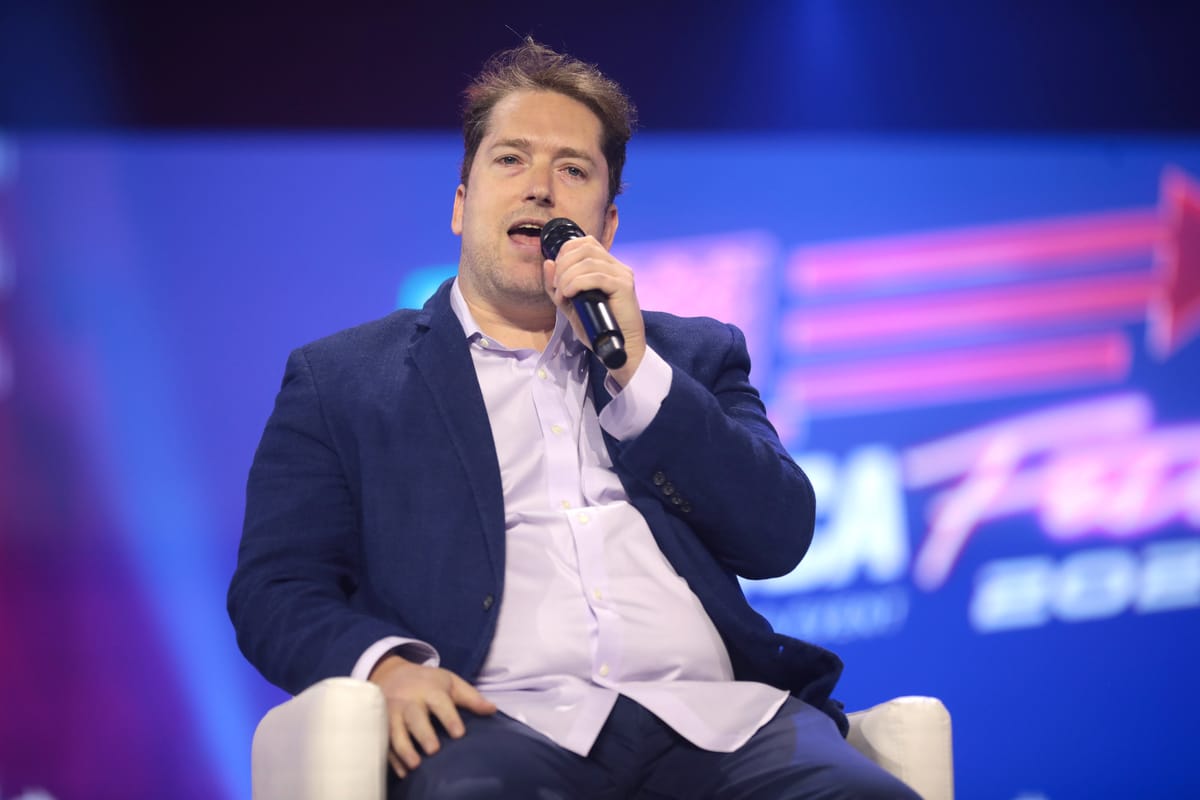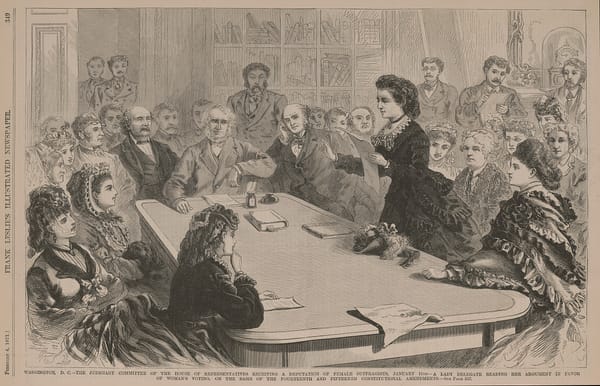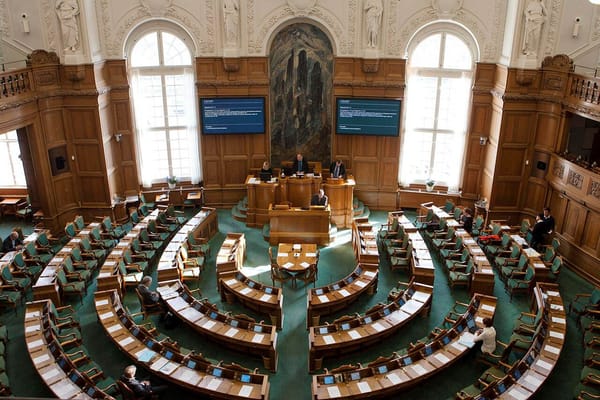The War on Professionalism and Professional Competence
Incompetence and sloppiness are the self-conscious ethos of the administration.

When HuffPost journalist S. V. Dáte reached out to the White House to ask who had picked Budapest for the location of the president’s recent meeting with Putin, White House press secretary Karoline Leavitt replied “your mom did.” White House Communications Director Steven Cheung also responded with “your mom.” Leavitt further elaborated:
It’s funny to me that you actually consider yourself a journal [sic]. You are a far left hack who nobody takes seriously, including your colleagues in the media, they just don’t tell you that to your face. Stop texting me your disingenuous, biased, and bullshit questions.
This is not a fluke, a standalone incident where the two top comms people in the federal executive branch gave in to a flight of fancy. Any reporter who has reached out to any federal agency for a statement this year can attest that it is entirely representative.
Here’s an example from our own Chance Phillips:
In response to an inquiry about how Beattie’s past statements might affect his ability to be an effective under secretary, a State Department official told me “Darren Beattie proudly works for the first Hispanic-American Secretary of State.” They added that my “desperate questions targeting him are biased and lack journalistic integrity.”
Can you imagine any self-respecting communications professional or institutional official of any kind talking to the press like this, before this year? It’s not just sloppy and unprofessional, it’s not a particularly effective way to influence the press or manage public relations. The overall approach has led to some entirely avoidable errors on part of administration officials.
Beyond the administration’s responses to press inquiries, there are their public-facing communications on websites and social media. When immigration policy analyst and lawyer Aaron Reichlin-Melnick criticized the quality of some data presented by ICE, rather than address or ignore the criticism, the official DHS X account tried for a dunk, calling the critic a “chronically online X troll.”
The juvenile actions and accusatory language spouting from every orifice of government may be among the most superficial features of our current crisis, but they are symptomatic of a larger disrespect for professionalism and professional competence.
The war on professional competence began practically from the first day of Trump's second term, with Elon Musk’s DOGE working hand in hand with OMB’s Russell Vought to push out as many federal workers as possible and defund as many institutions of research and higher learning as quickly and completely as possible. In an administration overwhelmingly led by disproportionate beneficiaries of past partnerships among government, universities, and industry, they sought to drain the government of competence and the universities of funds, effectively destroying such arrangements.
Trump II administration figures often speak the language of merit in order to contrast it to “DEI” or “affirmative action,” but in practice they only hire incompetent clowns—so long as they are also loyal clowns. Consider the case of Air Force General CQ Brown Jr., who Trump fired from his position as chairman of the Joint Chiefs of Staff. Despite an objectively impressive record of accomplishments, Pete Hegseth absurdly implied that Brown—who was nominated as Air Force chief of staff by the first-term version of Trump, in 2020—only got his job due to his race.
And what replacement for Brown did the new Trump II meritocracy select? A man so underqualified that he “required a presidential waiver to bypass the statutory qualifications for the job.” But for Hegseth and Trump, that’s no embarrassment at all. Who cares about professional qualifications? What value could those possibly have within the world’s largest professional military? For Hegseth, a military is not about the competent management of logistics, or building a culture capable of learning and adapting to changing conditions. It is about using lethal force and showing the world you are a real man. No professional with half a brain would force all of the top military leadership to show up in one place on short notice, never mind make them show up just to engage in a bit of showboating, but such is Hegseth’s manner of leadership.
The Trump administration’s reasons for hollowing out professional competence in this country are rather straightforward: he is a personalist dictator in the making, and professions, by their nature, have a certain independence from political authority. While a personalist might prefer to make use of professionals to accomplish their goals effectively, all they really care about is keeping the country’s elites loyal and dependent on themselves, personally. The reason that lawyers have jumped ship from the Department of Justice in droves this year is in no small part because they’ve been ordered to do illegal things or otherwise to burn their own reputation with judges and their peers in the law community.
Trump does not want lawyers who have scruples, or who care about their reputation with anyone but Trump and his closest cronies. The whole point of the Department of Justice for Trump is that it can be a tool for punishing his enemies. If these lawyers won’t do that when asked to, they have no value to him.
There are no innocent histories, and the history of the professions is no exception. They have often served authoritarian ends, from the treatment of mental illness in 20th century asylums to the medical establishment’s complicity in the early 20th century eugenics movement. In the aforementioned law community, John Yoo of “torture memos” fame is faculty in good standing at Berkeley. The tendencies of professionals to look out for their own and to speak down to outsiders, along with credential inflation and other tools of exclusion, produce understandable resentment. That resentment, and the often-merited criticisms of the historical sins and structural flaws of the professions, have given anti-professionalism a degree of respectability—a rather ironic development for an ideology nominally at odds with the very idea of respectability. Coupled with American anti-statism, anti-professionalism has become a potent political force, a cudgel to beat against federal workers specifically and professionals in general.
I am not here to absolve the professions of their many flaws and failings, historic and present. But I take it as simply obvious that surgery is best performed by an experienced professional surgeon, and that pushing the technoscientific frontier requires a tremendous investment in the skillset of scientists and engineers of all kinds. Outsider criticism has always been an important source of ideas and motivation that drive the professions to perform necessary reforms, but I nevertheless take it as obvious that someone who has read the professional literature on a subject is in a better position to understand it than someone who has skimmed Wikipedia articles.
Less obvious on its face, but still important, is professionalism writ large: the ethos shared by people who seek to do their job well, on the merits of what that means, while being buttoned up in how they present themselves and represent their institutions. It may seem like a small thing, in a year where masked goons are deployed in broad daylight to kidnap people off the streets. But when I take in the whole picture, the entirety of how the Trump administration operates, right down to just the kind of goons it is hiring, I can’t help but feel that professionalism is quite close to the crux of the matter.
In order to execute effectively in any domain, be it scientific or military, academic or administrative, you need competent professionals to do the job. In order to get and retain professional talent, an employer needs to be trusted to treat their employees with at least a minimum of professional courtesy. In order to be taken seriously by allies and enemies alike on the world stage, you need to be able to credibly mobilize large segments of your society’s professional talent to accomplish geopolitical goals, and you also need to be perceived as taking your own job, as political leadership, seriously. Professionalism as a mode of interacting with others is not just a nice-to-have quality, it is an essential tool for accomplishing these critical goals. Liberals need not turn a blind eye to the failings of the professions to see clearly what side we are on in the war against them.
Featured image is Darren Beattie, by Gage Skidmore




